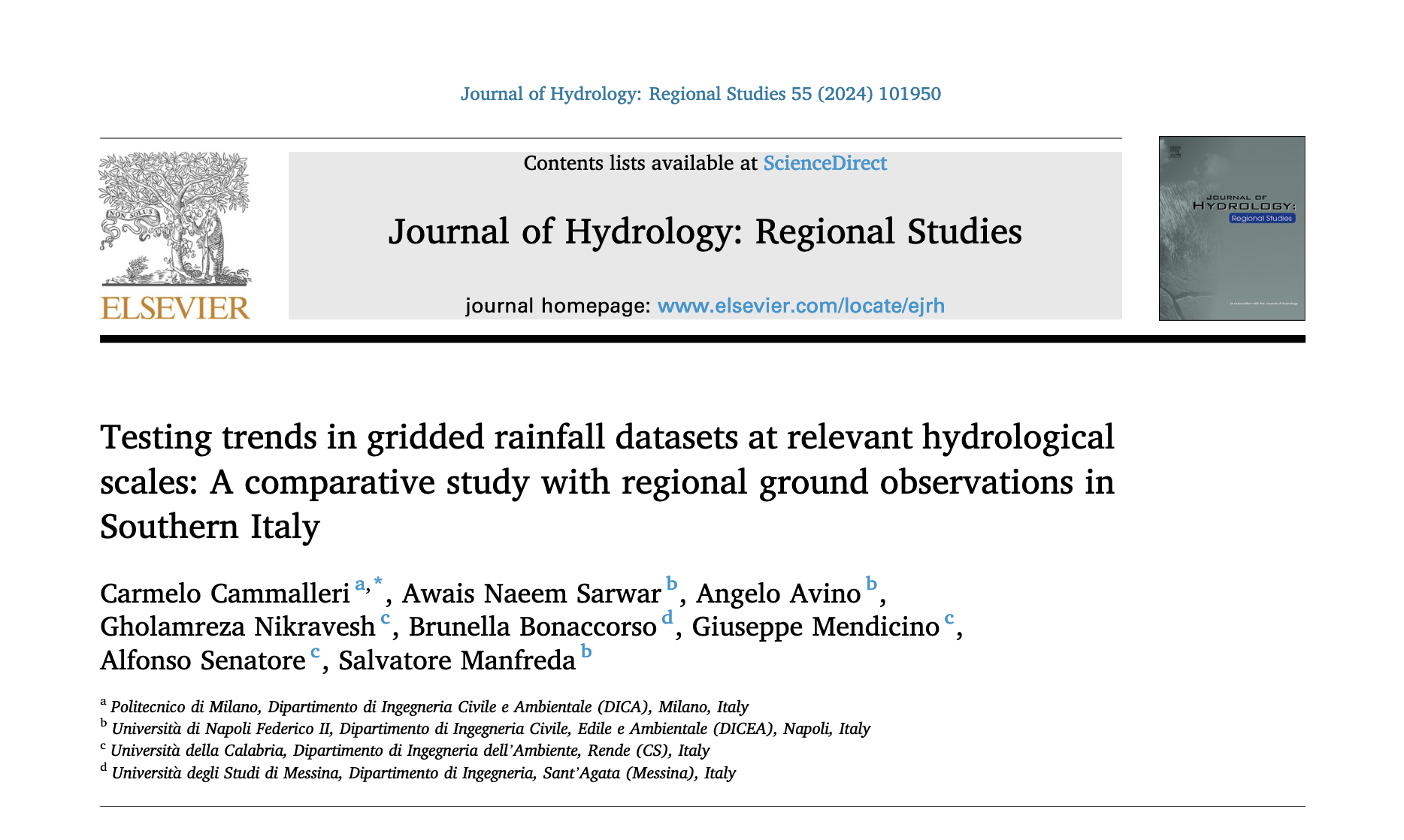In this study, we compared the spatiotemporal evolution of rainfall trends in E-OBS and ERA5 to those detected using historical rainfall series recorded by ground-based networks in Southern Italy. In particular, the study is applied to the Campania, Basilicata, Apulia, Calabria and Sicily regions (84,000 km2 in total) on seasonal and annual scales.
Study focus
Meteorological gridded datasets at large spatial scales are widely used in many hydroclimatic applications as they provide long and spatially homogeneous records. Regional trend analyses based on these data need to be treated with caution due to some potential limitations at relevant hydrological scales, such as the coarse spatial resolution and the spatio-temporal inhomogeneity of the underlying data. Gradual trends and abrupt change points were studied on rainfall data from 1979 to 2019.
New hydrological insights for the region
Both gridded datasets capture the major trends in observed rainfall, with a predominance of positive values driven by changes in September-November. Overall, ERA5 returns flatter results compared to E-OBS, with the former comparing well with observations in Sicily and Apulia, while the latter is performing well in Campania and partially in Calabria and Basilicata. Most statistically significant trends are associated with discontinuities in the early 2000s, and this is well captured by both ground and gridded datasets. The general behavior in inter-annual variability trends in Southern Italy is captured by both datasets, with ERA5 also detecting regional patterns.
How to cite: Cammalleri, C., A. N. Sarwar, A. Avino, G. Nikravesh, B.Bonaccorso, G. Mendicino, A. Senatore, S. Manfreda, Testing trends in gridded rainfall datasets at relevant hydrological scales: A comparative study with regional ground observations in Southern Italy, Journal of Hydrology: Regional Studies, Volume 55, October 2024, 101950, 2024. [pdf]
